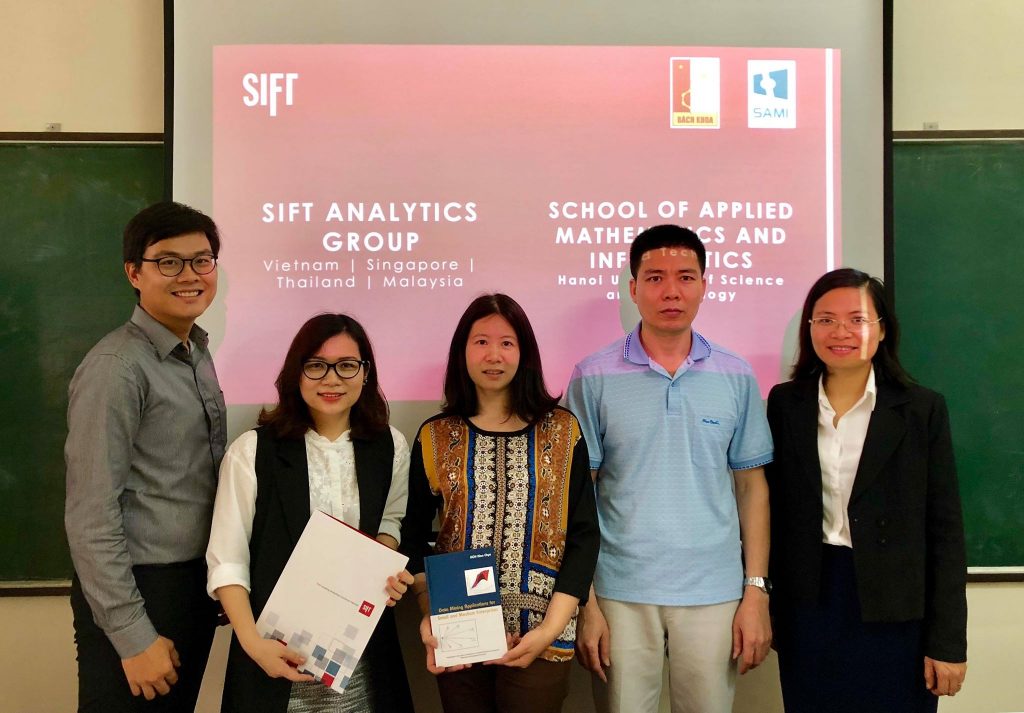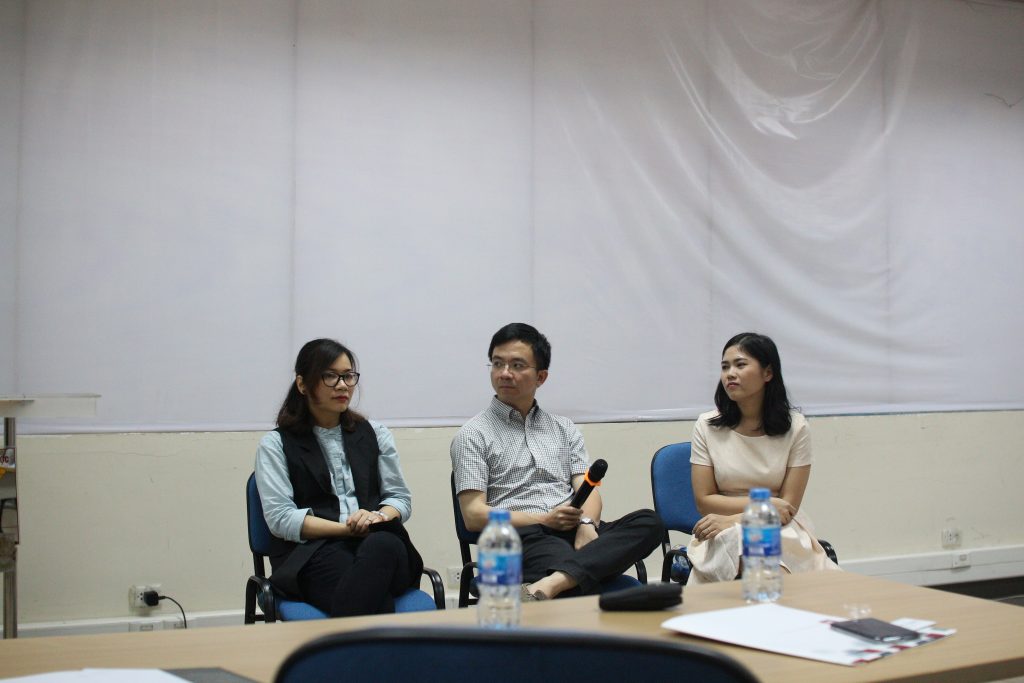What will you do when you study Mathematics – Informatics? Not only as a lecturer, researcher, but also a software developer, do research & development (R&D) in the IT field, or an applied math specialist in many other fields (economic-financial, irrigation, agriculture, industry…). The basic knowledge of Mathematics is very useful for students to develop a career in the hottest fields today and in the future – Data Analytics and Big Data – one of the fastest growing careers thanks to the the Fourth Industrial Revolution. Today we will talk with a business analysis solution consultant from SIFT AG (Singapore) – Ms. Nguyen Thi Le Trang, alumnus of Talented Mathematics and Informatics Program at School of Applied Mathematics and Informatics.

Thank you for accepting the invitation to interview today, first of all, would you like to introduce yourself and your current job?
Hi, my name is Nguyen Thi Le Trang, a student of class 48 in Talented Mathematics and Informatics Program at SAMI, HUST. I’m working as a consultant of SIFT AG, specializing in providing software products and services in business analysis.
At SIFT ANALYTICS GROUP Vietnam Co., Ltd., what are your specific tasks?
My job in the company is consulting on business analysis solutions, including training activities and consulting implementation of business analysis services in banking, finance, retail, education and human resource management.
In your opinion, what are the good and difficult things about data analysis and Big Data?
The good thing about data analytics and Big data is that big data appears in almost every economic and manufacturing sector. There are many technologies, tools, and software being developed to work with Big data. The difficulty in the data analysis profession is that the data collection is complex, the data sources are scattered, and the raw data is difficult to clean.
Many students do not know what knowledge they should prepare to be able to work in this field, can you inform us?
According to my study and working experience, the basic knowledge that should be prepared to work in business analysis is statistics, probability, optimization and programming skills.

For those who are starting to learn about Data Analytics and Big Data, how should they start? Do you have any advice for them?
To start learning about Data Analysis, you should review your knowledge of statistics, learn more algorithms in data mining, machine learning, and application problems of optimization. After mastering these basic knowledge, students should actively attend training courses, seminars on business analysis, do internships at companies with Analytics segments such as banking, securities, credit, retail, supermarket chain, restaurant chain, production distribution, logistics,…
“Data analysis and Big Data are new and growing fields”, what do you think about this idea, and what is your opinion about the development potential of this field?
The field of data analysis has been developing very rapidly in most of the advanced countries in the world. And Vietnam is no exception. Vietnam will follow other countries in Southeast Asia on this development path.
It is known that you are an alumnus of the talented program with a huge amount of knowledge, did you face any difficulties, and how did you overcome them?
I was fortunate to be able to study with very enthusiastic teachers at SAMI as well as get acquainted with seniors, so I can see my career path in the future. I have almost no problems in the learning process, maybe the time to study English is limited. I often self-study English and take the English certification exam to always be ready for the applications and scholarships after graduating from university.
When you were a student, how did you orient your work, when you just graduated, did you have difficulty finding a suitable job? Do you have any advice for graduating students?
As shared in the previous question, since my third year of university, I have been in contact with experienced people, so I have an orientation to study abroad. I applied for a scholarship to study for a PhD right after graduation. After returning to Vietnam, I did a number of jobs such as teaching and research. Those jobs are all in line with my orientation and interests. The advice for those who are about to graduate is, look for opportunities to interact with many experienced people, that is, teachers, seniors, recruitment companies to get an overview about career opportunities.

Thank you for the conversation today. Wishing you good health and success in your career.
